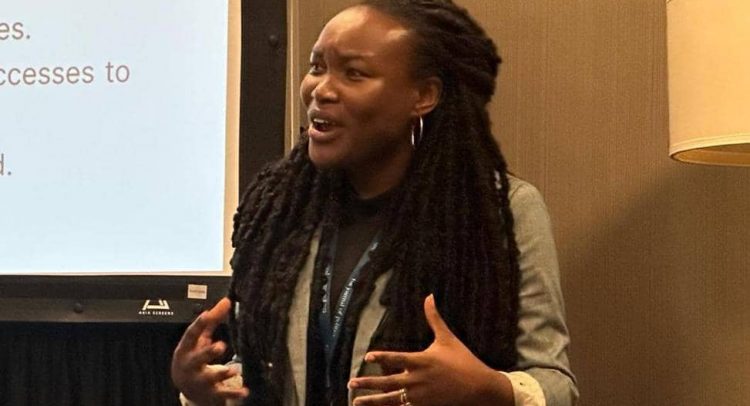Marcelline Amouzou
A Ghanaian-born U.S. – based environmental policy expert, Marcelline Amouzou, is calling for tighter environmental regulations across Africa to ensure sustainable resource management. Amouzou, a researcher in the political science department at the University of Florida—one of America’s top public universities—and a policy consultant with the think tank Afrobarometer, has extensively studied environmental management and resource extraction policies in multiple African countries.
In her two most recent publications titled “Sierra Leoneans urge government to tighten mining regulations to protect the environment” and “Mozambicans call for tighter governmental regulations to protect the environment”, Amouzou’s comparative research on Mozambique and Sierra Leone provides actionable insights into environmental governance. Drawing on robust survey data, the findings indicate strong public support for protecting the environment and regulating natural resource extraction. Notably, 56% of surveyed Mozambicans and 45% of surveyed Sierra Leoneans prioritize environmental concerns.
This public sentiment underscores the importance of aligning policy frameworks with citizens’ needs and demands.
Amouzou’s work highlights three key areas for policy reform: improved governance over resource extraction, enhanced community engagement in decision-making processes, and strengthened environmental protection frameworks. The research emphasizes the need to balance mining sector growth with environmental safeguards, ensuring that local communities benefit fairly. It also recommends more rigorous government oversight, better community consultation mechanisms, and policies that harmonize economic development with environmental stewardship.
“These evidence-based findings are not just theoretical constructs,” said Mrs. Amouzou in a recent interview with the Daily Guide, where she discussed the harmful effects of illegal mining on Ghana’s waterways. “They reflect the actual views of citizens. Illegal mining is a canker eating into the fabric of Ghanaian society, and combating it requires concerted efforts from both the government and the populace. Environmental health and human health go hand in hand,” argues Amouzou.
Beyond her research, Amouzou actively engages with communities, professionals, and policymakers through workshops, seminars, and public lectures.
By directly sharing her expertise, she aims to empower stakeholders to adopt more responsible environmental practices and policies.
This comprehensive approach, which combines empirical evidence, robust regulations, and active community participation, offers a model for other African nations. As environmental challenges intensify across the continent, Amouzou’s work provides a practical, citizen-driven template for effective environmental management that can safeguard resources for future generations.
By Janet Amponsah


